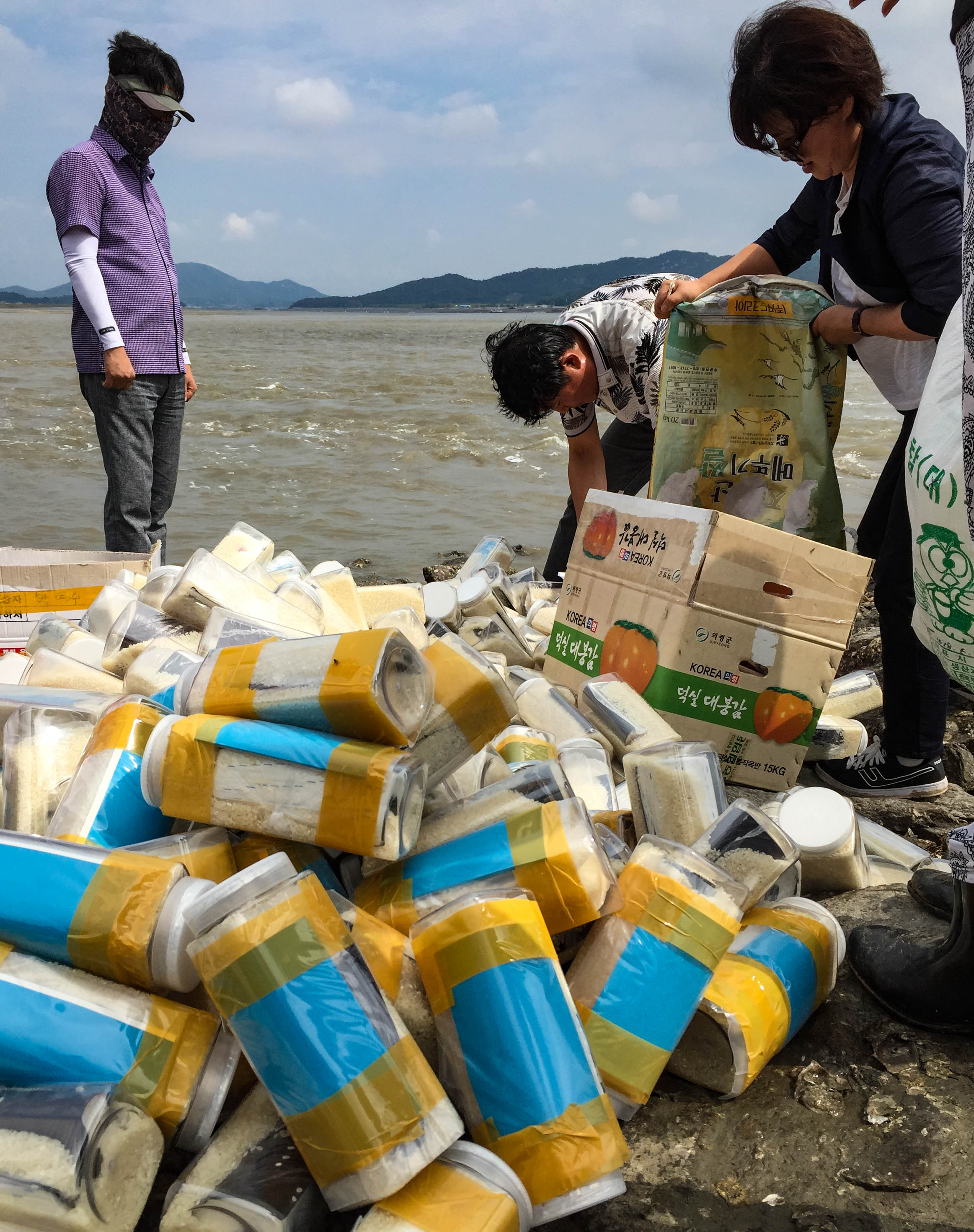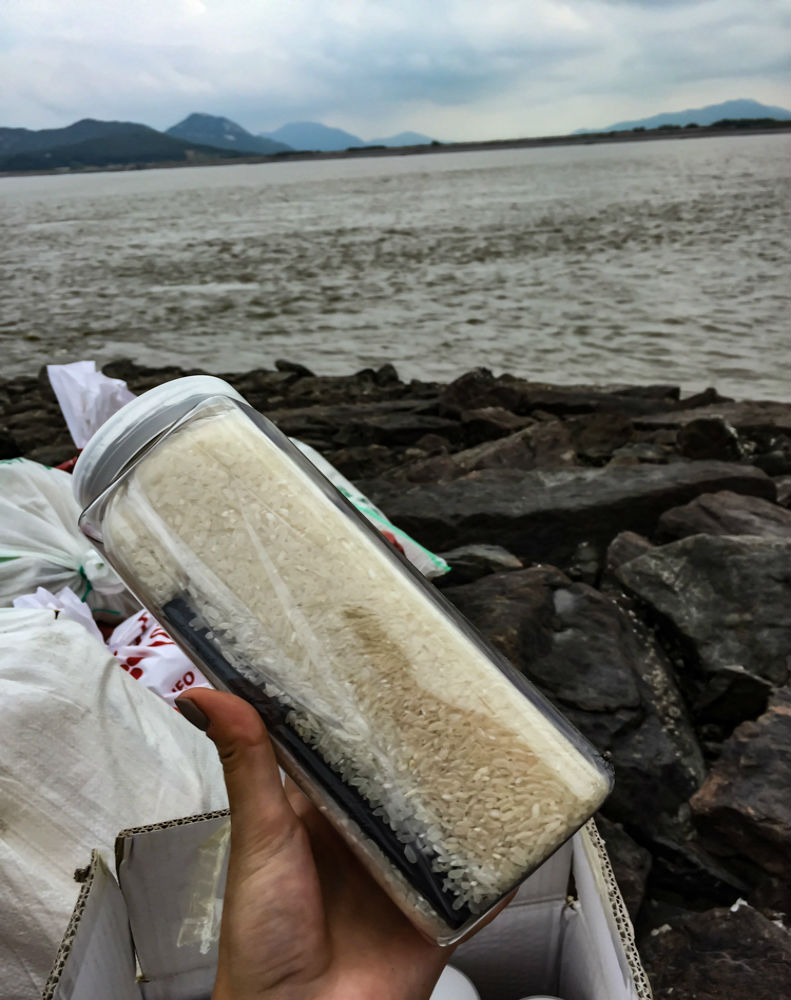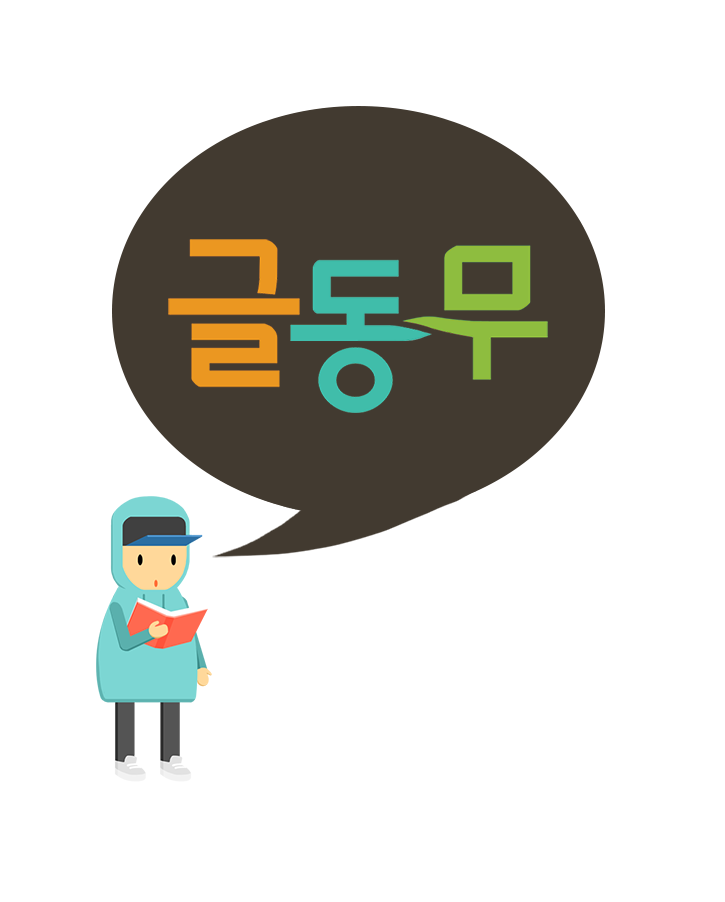North Korean
led
initiatives
On a humid August day North Korean defectors and activists set out in trucks to Gangwa, an island eight miles from the shores of North Korea. They travel in trucks transporting items that would be illegal in North Korea: USB flash drives loaded with news about current events, Korean dramas and K-pop. The items are packed into old water bottles and filled with rice.
When the grassy path turns to rock, the trucks stop and the activists unpack the boxes of contraband. They carefully walk over the slippery black rocks leading to the shoreline and dump the contents of their bags into one large pile.
The activists throw the bottles into the sea one by one. After a few moments dozens of bottles bob up and down together in formation. The bottles will make it to North Korea by evening.
Sending contraband to North Korea is discouraged by the South Korean government, but not illegal. The activists believe it is worth risking jail time to trespass and send items back to their former home.


A group of North Korean defectors collect bottles full of North Korean contraband and prepare to throw them into the sea. The bottles will wash up on the shores of North Korea by the evening. [Photos © Ash Abraham]
Money from South Korea
Water bottles full of contraband aren’t the only things sent to North Korea. Refugees send thousands of dollars to family members living in North Korea each month. Liberty in North Korea estimates remittances sent to North Korea are between US$10 million – US$15 million per year.
Through financial brokers, refugees can send money across China and into North Korea.
Jessie Kim was a financial broker while she lived in China. Before she escaped into South Korea, she arranged money transfers between refugees in Seoul and their families in North Korea. Brokers keep a percentage of the money and pass the rest across a network of brokers back into North Korea.
DVDs, USBs and South Korean goods are also smuggled to North Korea through the jjangmadang black markets. Although the markets are illegal, Kim Jong-un has largely ignored its existence. North Koreans stay in contact with their families and can send information to North Korea through the markets.
Closing the language gap
North Korean refugees are working to close the language gap between North and South Korea. North Korean defectors have partnered with Cheil Worldwide to develop a smartphone dictionary app which translates South Korean words to North Korean. The app is called UniVoca Gumri, short for Unification Vocabulary Comrade. The app doesn’t take into account the differences in regional dialects, but initiatives like Univoca Gumri are a first in addressing some of the challenges for North Korean refugees in South Korea.

The app pictured above, translates North to South Korean. It is called Gurldongmo which means “My Comrade Friend.”